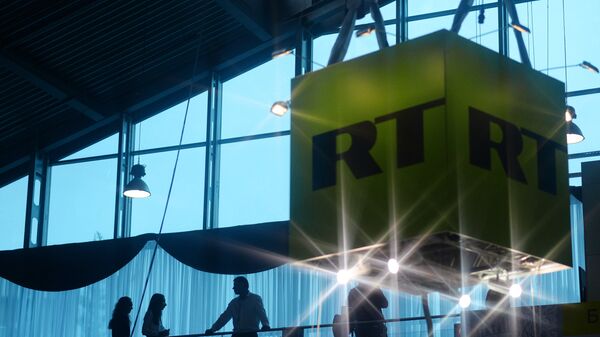"It's not a good idea to restrict expression based on one's assumption about the communicator's motivation," Brown said.
The SPJ vice chairman noted that even if a communication was propaganda, "intended to influence in a way that is somehow deemed unfair and deceptive," it was till a "form of expression."
"Obviously, not all communication is free of blemish," he added. "Ethically, the communicator should be transparent about sources, financial support and underlying philosophy. US journalists reject any attempt to require such disclosure, but some of them are willing to do it voluntarily," Brown said.
On Friday, Vladimir Dzhabarov, the first deputy chairman of the Russian parliament's upper house International Affairs Committee, told Sputnik Russia's Federation Council might suggest reciprocal measures for the US press in Russia, if Russian media in the United States faced any limitations.
Cecilline claimed RT is a Kremlin propaganda arm "dressed up as a legitimate news outlet" that has been able to avoid registration requirements under the 1938 Foreign Agents Registration Act (FARA) by structuring its operations to appear as autonomous from the Russian government.
Russian media outlets broadcasting in Europe and the United States have been repeatedly accused by US and other Western officials for allegedly spreading fake news and attempting to influence public life.
The US Intelligence Community has claimed Russia used its media outlets RT and Sputnik news agency to swing the outcome of the 2016 presidential election in favor of Donald Trump, but have not provided any evidence to back their claims. Russian President Vladimir Putin, Foreign Minister Sergey Lavrov and other senior officials have repeatedly stated that Moscow does not meddle in internal affairs of foreign countries.




